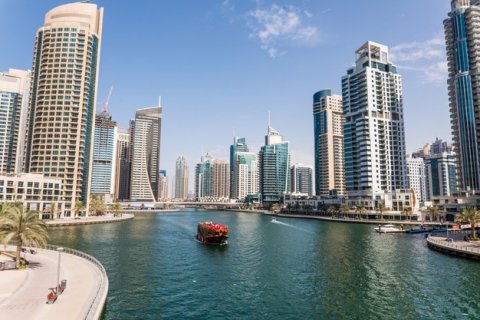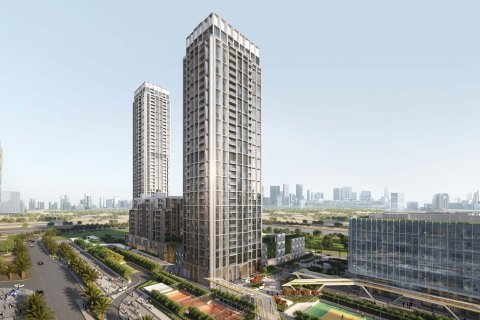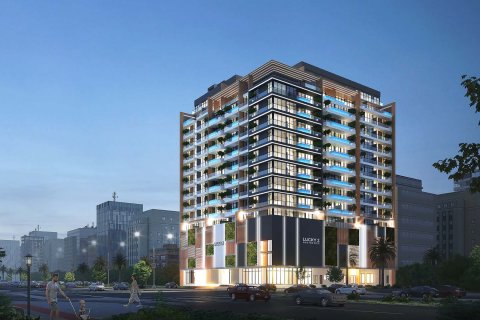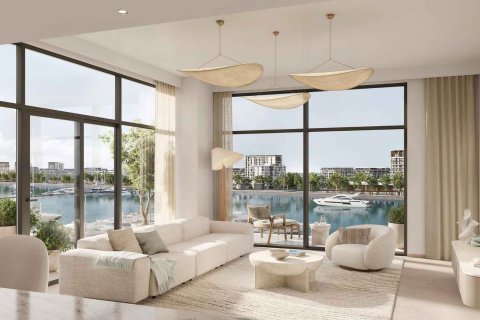
The United Arab Emirates leads among the top countries in demand for buying a home among foreigners, with one of the most popular destinations being Dubai. Thanks to its dynamic economic development and its status as an international financial centre, the city is increasingly becoming a more desirable place for investment and relocation. Purchasing real estate in Dubai offers advantageous opportunities for investors and those seeking a second home. Let's explore the advantages of purchasing an overseas property and various aspects of the buying process.
Content:
- Why should you think about buying a property in the UAE?
- What do you need to know about real estate ownership?
- What should you pay attention to when choosing a place to live?
- The laws regulating property deals in the UAE
- Steps to acquire housing in the United Arab Emirates
- Administrative expenses for acquiring a home
- The main mistakes when acquiring a home in the UAE
Why should you think about buying a property in the UAE?
The advantages of investments are numerous. The following points deserve special attention:
- Affordable housing prices: They make the market attractive to those with limited financial resources;
- No taxes: Buyers are exempt from paying real estate taxes. Moreover, they can increase their capital by using their properties or inheriting them to receive a net profit from investments;
- Easy payment: Mortgages are available to overseas investors, while some banks offer special conditions for expats.
The housing market encompasses a wide range of properties of various types and prices. The offerings range from luxury beachfront villas in Abu Dhabi to apartments in Dubai with cutting-edge amenities. Many properties are furnished, allowing new owners to avoid additional expenses.

What do you need to know about real estate ownership?
Foreigners can purchase housing and commercial real estate in the UAE freehold zones. Properties in these communities can be personally owned, giving their owners the right to sell, lease, donate or bequeath them.
Several legislative acts were signed between 2006 and 2008 listing free zones in Dubai, Umm Al Quwain, Ras Al Khaimah and Ajman. Foreign nationals had the right to purchase freehold real estate in Abu Dhabi since 2019 and three years later, Sharjah introduced freehold zones, allowing foreigners can register their housing units as personal.
Dubai offers a significant part of its territory as freehold zones, including areas in the downtown, suburbs and on the first sea line. This provides overseas investors with ample opportunities to purchase houses or apartments in off-plan development projects in Dubai.
What should you pay attention to when choosing a place to live?
Whether you choose flats or houses in Dubai or another emirate, the general rules for evaluating a home are as follows:
- Location: It’s important to assess the proximity of housing to transport hubs, educational institutions, hospitals, shops and other key infrastructure;
- Community amenities: It’s necessary to study the infrastructure of the area and correlate its features with your preferences. The preferences of young people, couples with children and pensioners vary;
- Size: The area of the house or apartment must meet the needs of future residents or investment goals;
- Market conditions: Knowing the market situation will help you to avoid mistakes when choosing a property within your budget;
- Maintenance costs: You should clarify this point before purchasing. Utilities, maintenance and property management costs vary in each residential complex.
For the most complete and up-to-date information, please contact a professional real estate consultant.
The laws regulating property deals in the UAE
Law No. 7 of 2006 provides the basis for this process, allowing citizens of the UAE and the Gulf countries to purchase properties in any area of Dubai, while foreign nationals can own housing in freehold zones or rent it out for up to 99 years.
Steps to acquire housing in the United Arab Emirates
- Step 1: Choosing the housing you are interested in. There are ready-made and off-plan residences available in the country.
- Step 2: Signing a sales contract. To complete it, you can download Form F, also known as a Memorandum of Understanding (MOU), from the website of the Dubai Land Department (DLD). Additional terms may be included in the document by agreement of the parties. The contract is signed by both parties with a witness at the registrar's office. The buyer is obliged to pay 10% of the value of the housing unit as collateral.
- Step 3: Obtaining a certificate of no objection. It’s necessary to contact the developer to complete the change of ownership. This procedure is performed when buying ready-made housing from a private person, not from a developer. This document is not required when purchasing new development projects in Dubai. The certificate will be issued only if there are no outstanding payments for utilities and other fees.
- Step 4: Registering the change of ownership. To reissue the ownership right, it’s necessary to prepare and submit all documents to the registrar's office personally or through a trustee. Transferring ownership is a quick and easy process.
Administrative expenses for acquiring a home
These include:
- Dubai Land Department fees: 4% of the property value and extra contributions of AED 430 (USD 117) for land plots, AED 40 (USD 11) for off-plan projects or AED 580 (USD 158) for residences and offices;
- Registration fee for real estate, which depends on the value of the housing unit. The amount is AED 2,000 (USD 544) plus 5% VAT for properties valued below AED 500,000 (USD 136,000);
- The amount is AED 4,000 (USD 1088) plus 5% VAT for housing stock worth more than AED 500,000 (USD 136,000);
- The fee for issuing a certificate of ownership is AED 250 (USD 68);
- The real estate agent's commission is 2% of the property value.

The main mistakes when acquiring a home in the UAE
Unfortunately, it’s impossible to guarantee a 100% successful real estate deal in any country, as the result includes numerous circumstances. However, it’s possible to reduce risks without making common mistakes, including:
- The lack of a detailed approach to studying the market's state and the seller's reputation. A high-quality inspection of the apartment you are interested in allows you to reduce the cost of repairs in the future;
- Ignoring the infrastructure of the area where the housing is located;
- Making mistakes in budget planning. You should pay attention in advance to additional transaction costs and credit money, if necessary. It takes time to get a mortgage, which can result in losing your home;
- Misunderstanding of the specifics of the contract registration process and refusal to help realtors. For example, all transactions must be registered with the government agencies. In addition, the documents must be notarized and translated into Arabic.
Only collaborate with real estate agents who are registered with RERA (Real Estate Regulatory Authority). This is not a cost-saving item. Following these recommendations will help you avoid typical mistakes and acquire real estate in the UAE as successfully as possible.













































